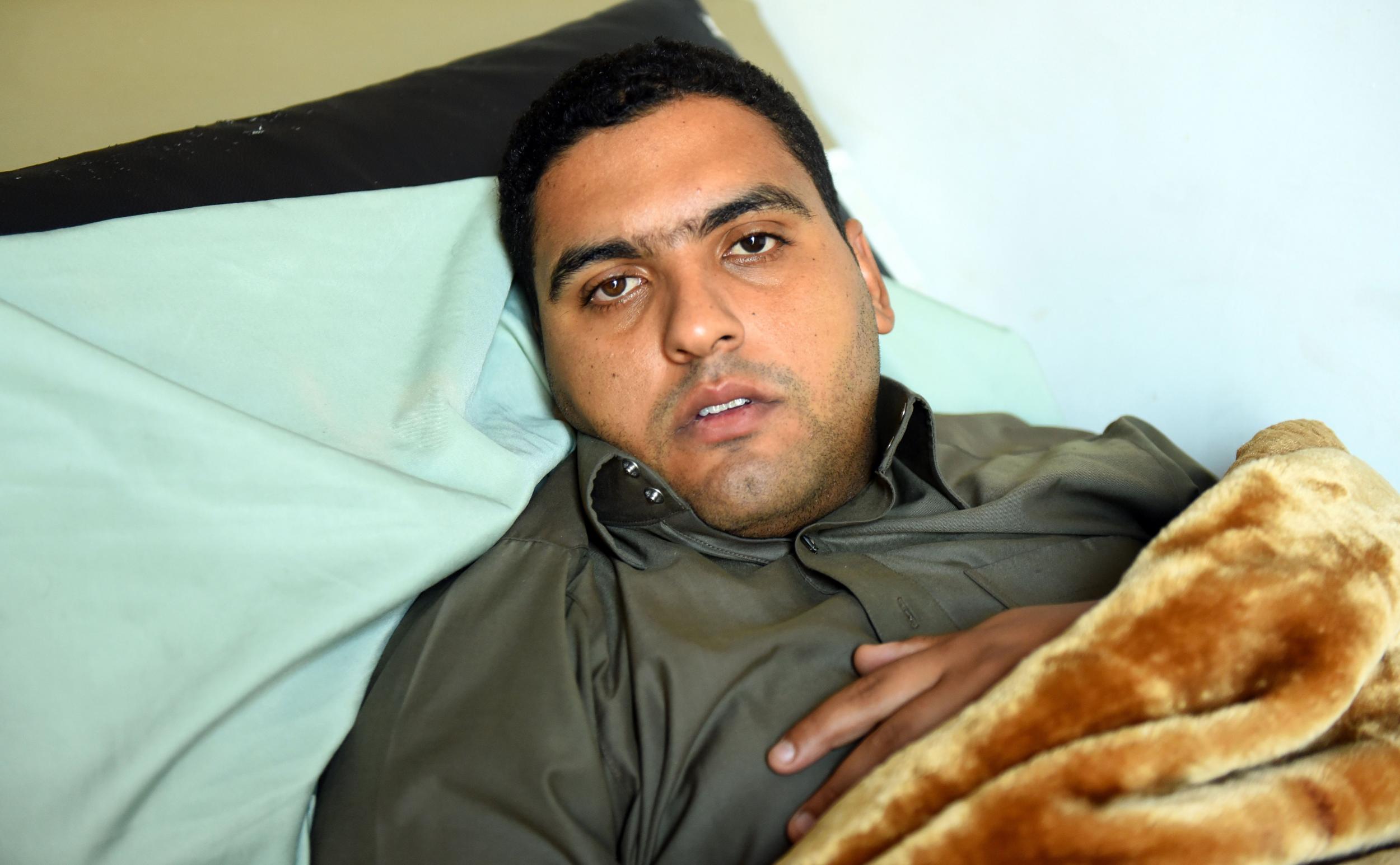Egypt mosque attack: Sinai imam vows to return and finish sermon after massacre kills 305 people
26-year-old Mohammed Abdel Fattah, a junior imam, hopes to return home from hospital in time for this week’s Friday prayers

A young imam who survived the horrific attack on a mosque in Egypt’s Sinai Peninsula has vowed he will return to the site and finish his sermon once he has recovered.
Mohammed Abdel Fattah, 26, was giving the Friday sermon in the village of Bir al-Abed last week when up to 30 armed gunmen carrying Isis flags entered the building, detonating a suicide bomb.
Survivors said that those who were not killed in the blast and tried to run away were gunned down and the militants set vehicles on fire to block access to the mosque for the security services.
Mr Abdel Fattah is currently recovering in a hospital in the Nile Delta town of Al-Husayniya and coming to terms with the tragedy inflicted on his community. He hopes to be well enough to return home this week and give this Friday’s sermon.
He had preached at the al-Rawda mosque for two years. His interrupted sermon was about “Mohammed, the prophet of humanity”, he told AFP.
“I was only two minutes into my sermon when I heard two explosions outside the mosque, and then I saw worshippers running in horror,” he said.
“Then people entered the mosque and began firing at everyone who was still standing.”
Can Egypt's revolution stay the distance?
Show all 2The imam fell from the minbar during the explosion and was then trampled by people fleeing the attack. Eventually bodies began piling on top of him, leaving him unable to move.
“As soon as the shooting started I fell. I didn’t see or feel anything except for the two or three bloodied bodies that fell on top of me,” he said.
The brutal attack is the worst terrorist incident in Egypt’s modern history.
While no claim of responsibility has yet been made, Egypt has been fighting several extremist groups in the Sinai since 2014, including an Isis-affiliated insurgency.
Extremism there has flourished amid the chaos that has engulfed the country since the 2011 revolution.
Egyptian President Abdul Fattah al-Sisi has vowed the country would respond to the attack with “brute force” – but public anger is growing at the government’s inability to thwart terror attacks.
While the majority of the Sinai Province’s operations primarily target the police, army and other security forces, the Isis affiliate has also carried out suicide bomb attacks and executions of Sufi Muslims, whose interpretation of Islam they consider heretical. Many worshippers at al-Rawda mosque are believed to be Sufi.
Outside of the Sinai, Egypt’s 10 per cent Christian minority has been a frequent target for extremists, killing dozens of people in attacks on churches.
Subscribe to Independent Premium to bookmark this article
Want to bookmark your favourite articles and stories to read or reference later? Start your Independent Premium subscription today.

Join our commenting forum
Join thought-provoking conversations, follow other Independent readers and see their replies